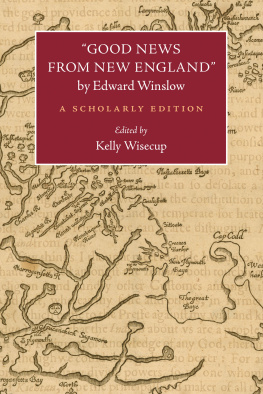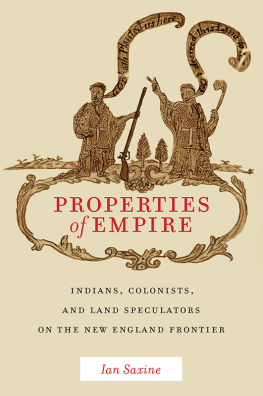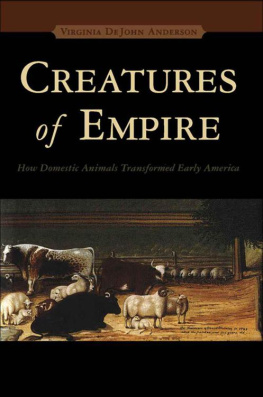Margaret Ellen Newell - Brethren by Nature: New England Indians, Colonists, and the Origins of American Slavery
Here you can read online Margaret Ellen Newell - Brethren by Nature: New England Indians, Colonists, and the Origins of American Slavery full text of the book (entire story) in english for free. Download pdf and epub, get meaning, cover and reviews about this ebook. year: 2015, publisher: Cornell University Press, genre: Politics. Description of the work, (preface) as well as reviews are available. Best literature library LitArk.com created for fans of good reading and offers a wide selection of genres:
Romance novel
Science fiction
Adventure
Detective
Science
History
Home and family
Prose
Art
Politics
Computer
Non-fiction
Religion
Business
Children
Humor
Choose a favorite category and find really read worthwhile books. Enjoy immersion in the world of imagination, feel the emotions of the characters or learn something new for yourself, make an fascinating discovery.

- Book:Brethren by Nature: New England Indians, Colonists, and the Origins of American Slavery
- Author:
- Publisher:Cornell University Press
- Genre:
- Year:2015
- Rating:4 / 5
- Favourites:Add to favourites
- Your mark:
Brethren by Nature: New England Indians, Colonists, and the Origins of American Slavery: summary, description and annotation
We offer to read an annotation, description, summary or preface (depends on what the author of the book "Brethren by Nature: New England Indians, Colonists, and the Origins of American Slavery" wrote himself). If you haven't found the necessary information about the book — write in the comments, we will try to find it.
In Brethren by Nature, Margaret Ellen Newell reveals a little-known aspect of American history: English colonists in New England enslaved thousands of Indians. Massachusetts became the first English colony to legalize slavery in 1641, and the colonists desire for slaves shaped the major New England Indian wars, including the Pequot War of 1637, King Philips War of 167576, and the northeastern Wabanaki conflicts of 16761749. When the wartime conquest of Indians ceased, New Englanders turned to the courts to get control of their labor, or imported Indians from Florida and the Carolinas, or simply claimed free Indians as slaves.
Drawing on letters, diaries, newspapers, and court records, Newell recovers the slaves own stories and shows how they influenced New England society in crucial ways. Indians lived in English homes, raised English children, and manned colonial armies, farms, and fleets, exposing their captors to Native religion, foods, and technology. Some achieved freedom and power in this new colonial culture, but others experienced violence, surveillance, and family separations.
Newell also explains how slavery linked the fate of Africans and Indians. The trade in Indian captives connected New England to Caribbean and Atlantic slave economies. Indians labored on sugar plantations in Jamaica, tended fields in the Azores, and rowed English naval galleys in Tangier. Indian slaves outnumbered Africans within New England before 1700, but the balance soon shifted. Fearful of the growing African population, local governments stripped Indian and African servants and slaves of legal rights and personal freedoms. Nevertheless, because Indians remained a significant part of the slave population, the New England colonies did not adopt all of the rigid racial laws typical of slave societies in Virginia and Barbados. Newell finds that second- and third-generation Indian slaves fought their enslavement and claimed citizenship in cases that had implications for all enslaved peoples in eighteenth-century America.
Margaret Ellen Newell: author's other books
Who wrote Brethren by Nature: New England Indians, Colonists, and the Origins of American Slavery? Find out the surname, the name of the author of the book and a list of all author's works by series.






